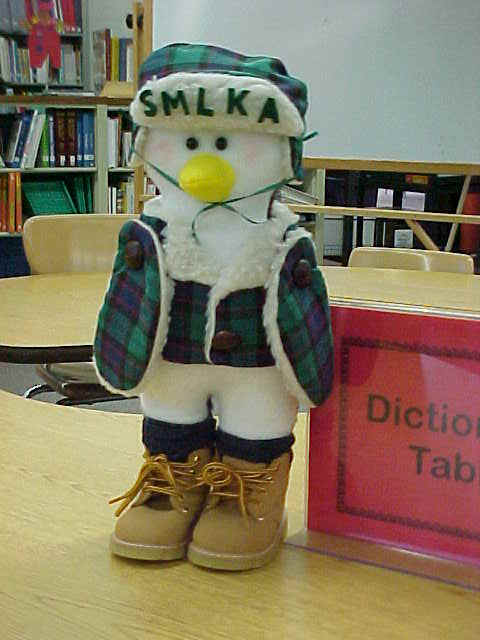| How do you spell the word or topic you
are looking for? |
What does the word you are looking for
mean? |
Where do you begin to find information? |
If you are studying a person, use his
last name. |
What are some keywords associated with
your word or topic? |
If you don't succeed the first time, try
again.
If you still have trouble, ask for help. |
| Try to sound it out; use other
strategies you know for making sense of new words.
Use a dictionary
Ask a friend
Ask a teacher or librarian
Use the BROWSE command on the computer
|
Dictionaries give you precise
definitions. They tell you what something is.
They can also tell you where something
comes from..
They can tell you when something happened.
They can tell you who someone is.
Not all dictionaries are alike.
Try more than one.
|
|
People have dictionaries of
their own. They are called biographical dictionaries. Check one of
these.
Find out when the person lived.
Find out where the person lives or lived.
Find out what the person did that made him
famous.
Kings, queens, emperors, and a few others
are the only ones you can look up by their first names.
(Example: Princess Diana, Queen Victoria,
Caesar) |
Keywords are words that are
closely related to your word that will help you find your topic. For
example, you may want to find information about a wombat. If you can
find nothing about wombats, you will want to use other keywords such as
animal, Australia and marsupial. If you have not used a dictionary
or an encyclopedia you may not know these words, and will be stuck.
They may be words like diet, habitat, and or young but these are
specific things you want to know about your animal. You will need to
do a two-word (Boolean) search to find information about the diet of
a wombat. |
Sometimes just re-doing your
search will help. Maybe you pushed a wrong key and spelled the word
wrong the first time.
Ask for help when you get stuck.
Ask for help before you get frustrated. |
